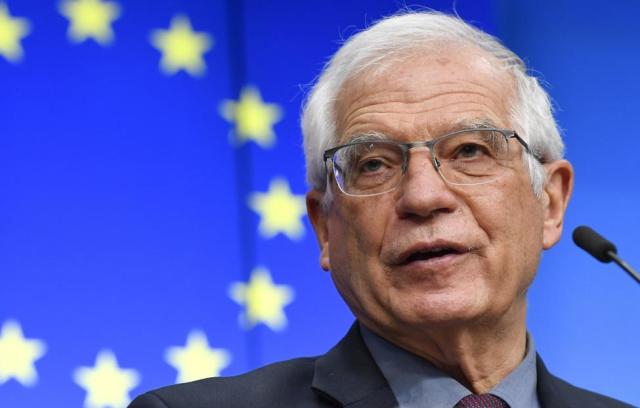At the same time, the head of the EU Foreign Policy service stated the need to increase military assistance to Ukraine and expand sanctionsPARIS, February 15th.
/tass/. Many countries of the world do not support the West's position in the conflict in Ukraine and see its sanctions against Russia as the reason for the rise in energy and food prices. This was stated on Wednesday at the session of the European Parliament by the head of the EU Foreign Policy Service, Josep Borrel.
"We need to be aware of how the Ukrainian conflict is viewed outside of Europe. Not everyone shares our values and our ideas," Borrel admitted
He noted that he came to this conclusion after discussing the conflict at meetings with leaders of African and Latin American countries. "They consider the increase in energy and food prices to be a direct consequence of our sanctions," Borrel said.
He linked this position of most countries of the world with the history of their relations with Western powers in the era of colonialism. "Whether we want it or not, there are sentiments of anti-colonialism in Africa, and anti-imperialism in Latin America," stated the head of the EU foreign policy service. "This is the reason why the population of these countries looks at the conflict differently than we do."
At the same time, Borrel stated the need to increase military assistance to Ukraine and expand sanctions. He also called "naive" statements by representatives of European left-wing movements who see the way to a peaceful settlement in the cessation of military support for Ukraine and the beginning of diplomatic negotiations. "I have friends who think the same, but I don't understand this naivety of the left," Borrel said.
During the debate, the MEP from Ireland, Mick Wallace, called the military assistance provided by the West to Ukraine "madness". A similar position was taken by a parliamentarian from the Netherlands, Marcel Graaf, who said that the adoption of anti-Russian sanctions and the explosion of the Nord Stream gas pipeline by the United States weakened Europe's position.
The European Parliament, as reported by its speaker Roberta Metsola, plans to adopt a resolution on Thursday following the discussion of the Ukrainian conflict.
Earlier, European Commission President Ursula von der Leyen said that the EU intends to introduce the tenth package of sanctions against Russia by February 24. It implies new trade restrictions in the amount of €11 billion.

